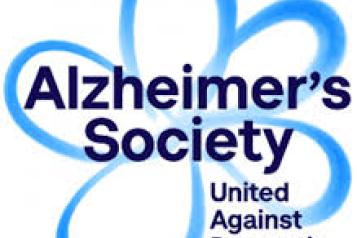Dementia Action Week 2024
Did you know 1 in 3 people living with dementia do not have a diagnosis? A diagnosis is vital to give people access to the care, treatment and support they desperately need.

The word 'dementia' describes a set of symptoms that over time can affect memory, problem-solving, language and behaviour. Alzheimer's disease is the most common type of dementia. Dementia is progressive, which means symptoms may be relatively mild at first, but they get worse over time.
A diagnosis of dementia can leave a person with lots of questions about what is next. However, getting an early diagnosis can help access the right support like treatments to help with symptoms.
Alzheimer's Society's Dementia Symptom Checklist includes 20 questions about possible symptoms or behaviours relating to dementia including;
- Memory and mental ability problems.
- Problems with daily living activities.
- Mood and behaviour problems.
- Notes on other symptoms or concerns.
- Hearing problems.
- Sight problems.
Share your or your love one's diagnosis story with the Alzheimer's Society
Support for people affected by dementia:
Alzheimer's Society offers a range of support services. From a listening ear on the phone to a visit in person and opportunities to connect with others.
0333 150 3456 to get personalised information, support and advice.
If you have speech or hearing difficulties and have a textphone or an adapted computer, you can use Text Relay to call the English-speaking Dementia Support Line on 18001 0300 222 1122.
Halton Carers Centre
If you look after a loved one with dementia Halton Carers centre can offer you support, information and training to help you with your caring role.
01928 580182


